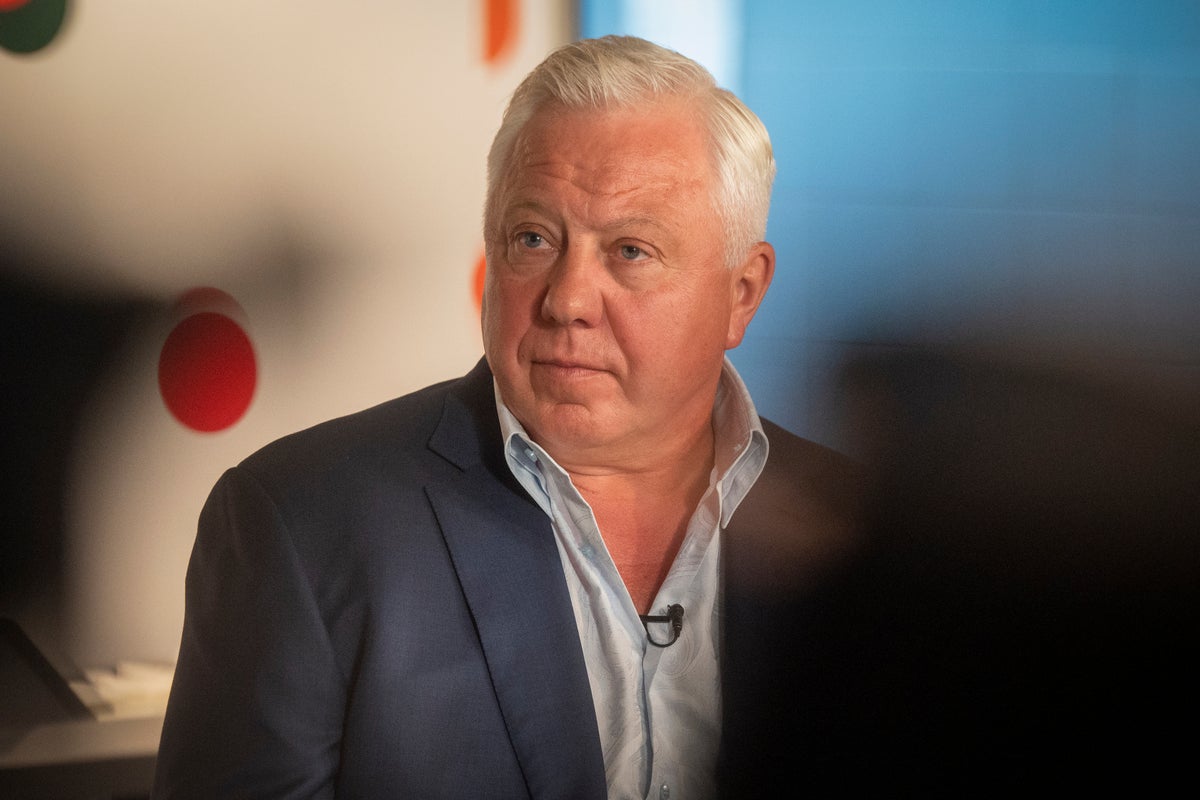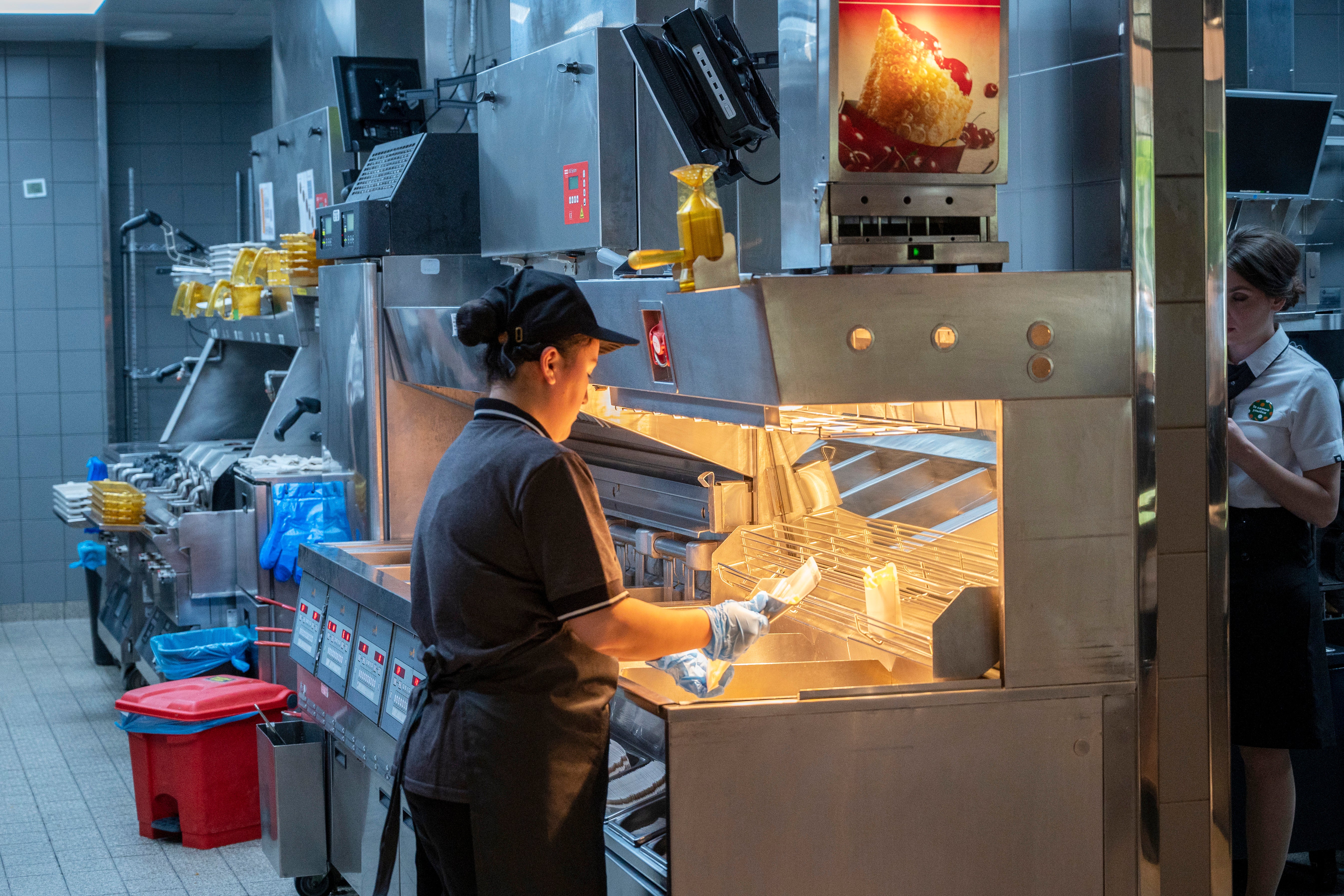
Vkusno i Tochka (“Tasty and That’s It”), the Russian successor chain to McDonald’s, has opened its first 15 branches in Moscow after the American fast-food giant abandoned the country in protest against Vladimir Putin’s invasion of Ukraine.
McDonald’s departure, part of a mass commercial exodus from Russia in response to its attack on its neighbour on 24 February, was particularly symbolic given that the opening of its first restaurant in Moscow’s Pushkin Square on 31 January 1990 marked the dawning of western consumer-capitalism in the former heart of the Soviet Union.
A reported 30,000 Russians queued that day for Big Macs and Coca-Cola, their first taste of mass-produced prosperity.
That flagship eatery has now been rebranded with Vkusno i Tochka’s logo and serves only unlicensed imitation hamburgers, fries and sodas, with not a McFlurry in sight, although its slogan promises: “The name changes, love stays.”
“Our goal is that our guests do not notice a difference either in quality or ambience,” says Oleg Paroev, who is running the new business having headed up McDonald’s Russian operations for seven years.
The man bankrolling the venture is Russian billionaire Alexander Govor, who bought the 850 McDonald’s outlets in the country for a fee neither side has yet disclosed, retaining all 62,000 staff for at least two years as part of the agreement.
Mr Govor, who previously launched a franchise of 25 McDonald’s restaurants in his native Siberia in 2015, said he intends to reopen all shuttered branches within two months and expand to 1,000 as soon as possible.
“I am very proud of the honour that developing this enterprise has given me,” he said earlier this month. “I am ambitious and I don’t only plan to open the 850 restaurants but to develop new ones.”

Mr Govor has pledged to invest RUB7bn (£99m) in the project this year, according to Reuters, although the BBC has reported that the sanctioned bank Sovcombank may have supported the acquisition as the tycoon is not thought to have had sufficient funds available to secure the deal alone.
The man himself hails from the industrial city of Novokuznetsk in the southwest of Siberia and earned his fortune in coal mining, co-owning the natural resources company Yuzhkuzbassugol in his hometown.
Thriving during the era of economic liberalisation under Boris Yeltsin in the 1990s, Yuzhkuzbassugol was supported by Evraz, owned by former Chelsea FC boss Roman Abramovich, until its operations were suspended in 2007 in response to an industrial accident that left 100 miners dead, enabling the latter to acquire the company outright.

Mr Govor reportedly then turned his attention towards oil, acquiring the Yaisky refinery in 2013, which he still co-owns through his 50 per cent stake in construction company Neftekhimservis.
His other holdings reportedly include a 50 per cent stake in a small forestry firm and 25 per cent in a fishing and hunting company, according to the Interfax news agency.
He also sits on the board of directors of Inrusinvest, which has projects including a medical centre and a Park Inn hotel in Novokuznetsk, and founded Sibirskaya Milyona, a meat and dairy business.
Mr Govor is a self-declared patron of the arts and a keen collector of vintage cars, 40 of which he reportedly donated to his hometown museum.







